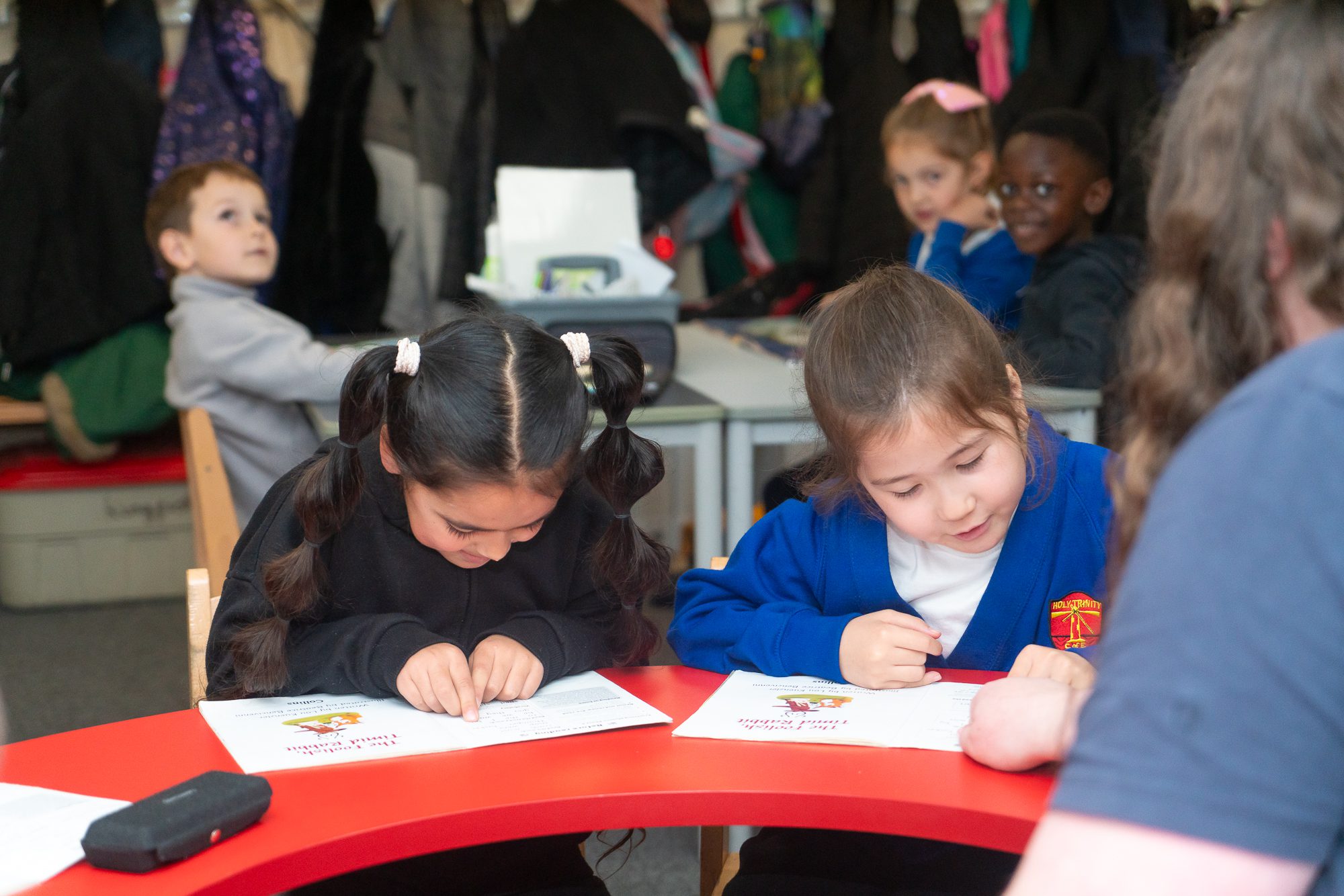Holy Trinity Church of England Primary School is committed to the education of the whole child.
To achieve this, we employ collaborative learning strategies following ‘Kagan’ methods which engage pupils deeply in learning, and we plan lessons using Rosenshine’s Principles of Instruction to ensure a clear and consistent structure, with success for every pupil.
Kagan Co-operative Learning
Kagan co-operative learning and active engagement ensures that all pupils are active participants in every lesson.
Pupils are grouped together (often in fours) to enable partner or group sharing of ideas in every session. This means that, at least 25% of the class are sharing their ideas at any one time, rather than just one hand up at a time.
These Kagan groups are planned to ensure that SEND or EAL pupils can be supported by their peers and are able to voice their opinions without being overwhelmed by the whole class being their audience.
Pupils are taught to coach each other by talking through their thought processes or method of working out: their partner then responds by asking questions or explaining their different ideas. Being able to explain to someone else deepens understanding for both partners.


Rosenshine’s Principles of Instruction
Our lessons are planned using a consistent format throughout the school to ensure the greatest success for the highest number of pupils. The clear structure provides consistency for SEND pupils, who know what to expect in each session. The use of scaffolds and manipulatives supports both SEND and EAL learners.
- Each lesson starts with a review to warm-up (this is an ideal time to use a Kagan strategy).
- Pupils are then taught new learning in small steps with clear models, worked examples and scaffolds.
- These models, worked examples and scaffolds are then used to support pupils through guided work: a safe space to try out new learning with adult and peer support (this is an ideal time to use Kagan coaching).
- Questions are asked throughout the review, small steps and guided work to check for pupil understanding and ensure a high success rate.
- Pupils will then complete independent work to show their understanding (support will be tailored for some of our pupils in this part of the lesson).
- The lesson concludes with another review, where a thinking question will be posed or pupils will share their work for peer assessment. (Again, an ideal time to use Kagan strategies.)

